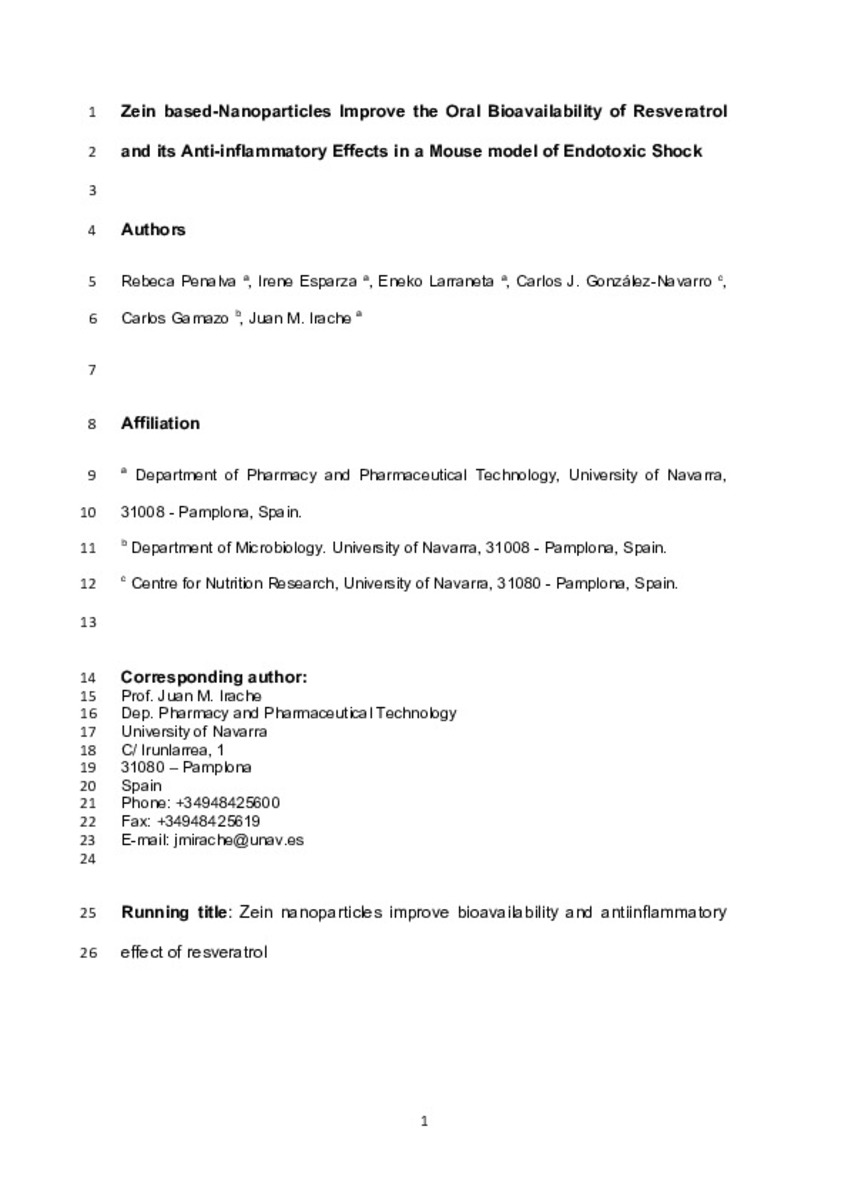Zein based-nanoparticles improve the oral bioavailability of resveratrol and its anti-inflammatory effects in a mouse model of endotoxic shock
Otros títulos :
Zein nanoparticles improve bioavailability and antiinflammatory effect of resveratrol
Palabras clave :
Resveratrol
Zein
Nanoparticles
Bioavailability
Anti-inflammatory
Materias Investigacion::Farmacia::Farmacia y farmacología
Materias Investigacion::Farmacia::Química farmacéutica
Fecha de publicación :
2015
Editorial :
American Chemical Society
Proyecto:
the Spanish Ministry of Science and Innovation
Regional Government of Navarra (Alimentos funcionales, Euroinnova call)
Gobierno de Navarra (ADICAP; ref. IPT-2011-1717-900000)
Cita:
Peñalva R, Esparza I, Larrañeta E, González-Navarro C, Gamazo C, Irache JM. Zein based-nanoparticles improve the oral bioavailability of resveratrol and its anti-inflammatory effects in a mouse model of endotoxic shock. J Agric Food Chem. 2015;63(23):5603-5611
Aparece en las colecciones:
Estadísticas e impacto
0 citas en

0 citas en

Los ítems de Dadun están protegidos por copyright, con todos los derechos reservados, a menos que se indique lo contrario.










